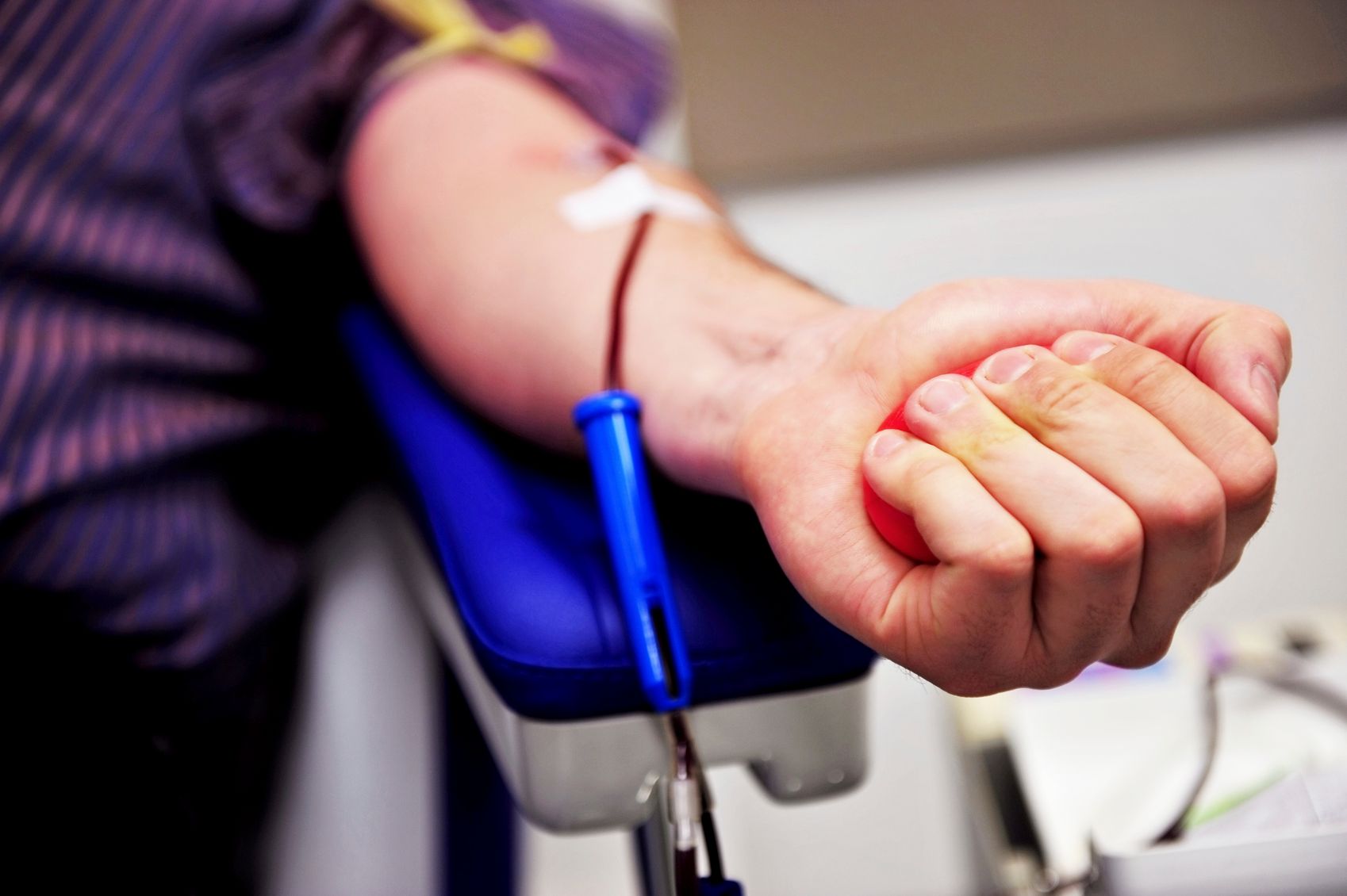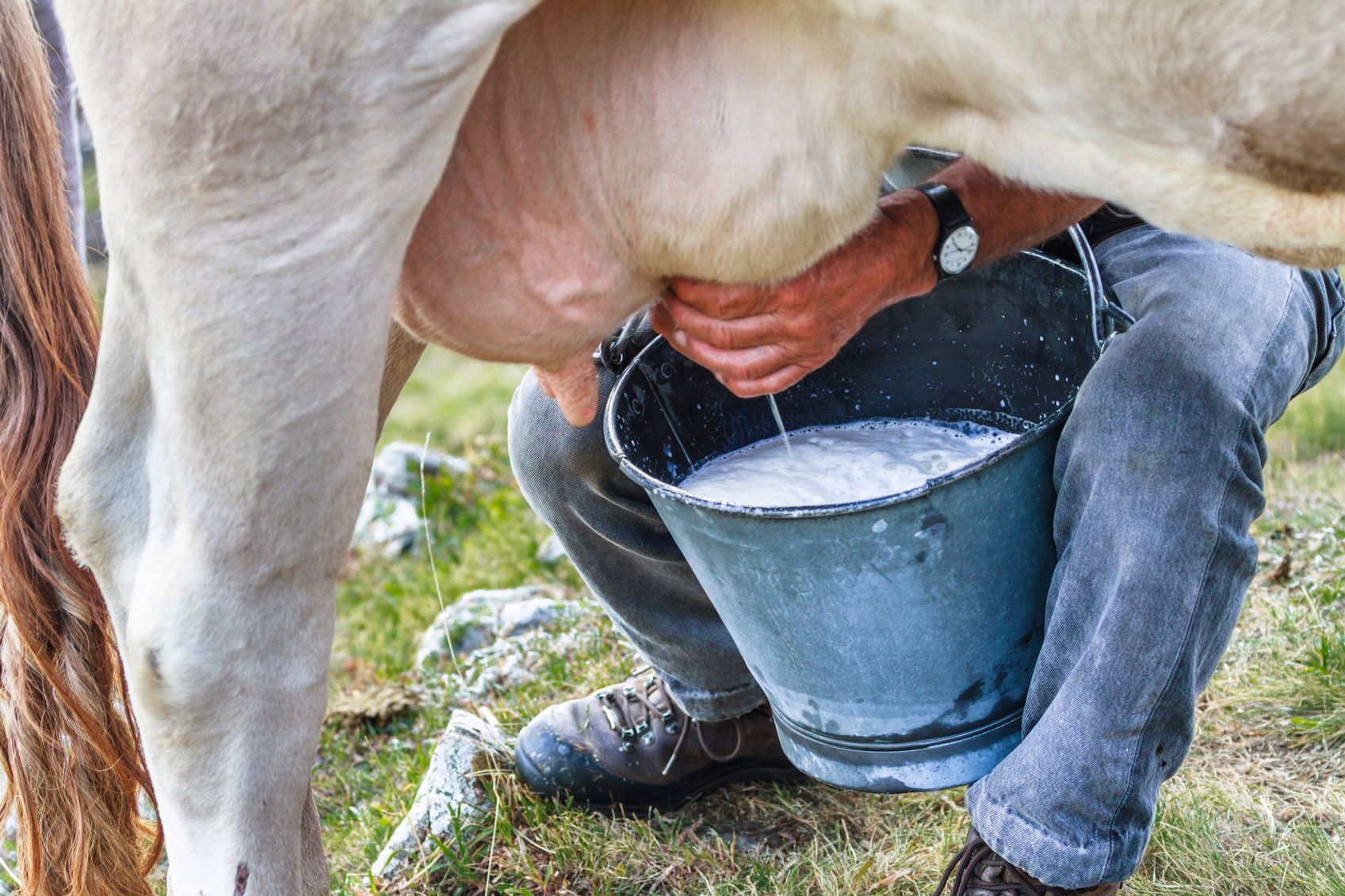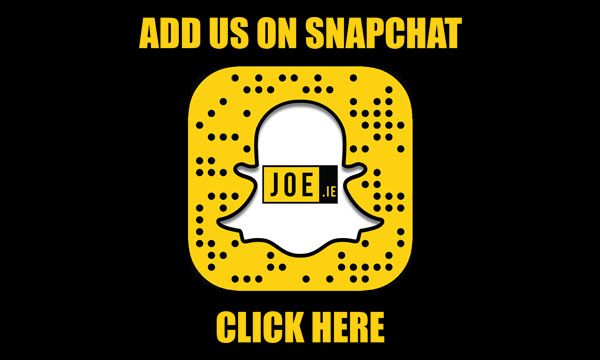

Share
16th August 2016
11:33am BST

In the last 5 years, blood donation in Ireland has fallen by 21%; young people are not showing up.
The reasons for this are not known. Perhaps we’re travelling more, getting more tattoos, or perhaps we have forgotten that this is a part of being in a society. Giving when you don’t have to.
Speaking to JOE, Stephen Cousins of The Irish Blood Transfusion Service (IBTS) says that if the trend continues, the age of donors will continue to increase and the supply of blood will not be guaranteed.

According to Stephen, blood has a shelf life of 42 days but it is nearly always used before then. When children need blood it has to be given within 7 days of donation.
Blood donation has a weird history - just like all medical advancements it went through a period of experimentation.
For a brief, but disastrous, period there was a trend of injecting animal milk, that of goats, cows and even breast milk into humans. Medics believed that the fat from the milk would turn into healthy blood. It sounds mental and understandably resulted in the painful death of almost everyone who was subjected to it.

However, certain experiments made blood transfusion safe and an essential part of modern medicine. One in four people will need blood at some point in their lives. Yet only 3% of the eligible population give their blood.
In Ireland, we pride ourselves on how generous we are. In the last five years Irish people have donated more to charity per person than almost any other nation; only the US and Myanmar give more.
But does this generosity only manifest when it is something we get credit or recognition for? If blood donation was tax deductible would the supply exceed the demand?
https://twitter.com/DubFireBrigade/status/765140731514195968On a Thursday afternoon in the Blood Clinic on Dublin’s d’Olier Street, there is a stream of people coming in to donate.
Some, like Nicholas, are doing it because it’s their ‘civic responsibility’ while others like Ciara does it because "it could be a family member. It could be you. I have a son, it could be him that needs it. So it’s important, really important to give blood."
There is a woman, Claudia, who hates needles but she says, "I do it to help out a bit. There’s a lot of sick people in the world and it’s so little that I can do. This is all I can do to help. I’m really not into needles, so I am usually the one who looks pale and makes faces. But it is so important." Others I spoke to in the clinic also talked about this desire to help. For Eoin it is just 'common-sense' and he says, “there’s no grand moral or ethical reasoning behind me being here. A chap I work with, he takes a half day off every three months, out of his own leave to come down here and give blood. I kinda just said I’d come down here with him. It’s easy, it’s straightforward, there’s no harm in it, it can only do good."3% of Irish ppl r blood donors. 100% of Irish ppl expect unlimited blood supply if/when we need it! @Giveblood_ie #Today #MissingType
— Ray Martin (@raymondpmartin) August 16, 2016
If you give it away you won’t miss it, if you receive it, its invaluable #missingtype pic.twitter.com/mwPfTGu7ra — Dublin City Council (@DubCityCouncil) August 15, 2016First time donor Sean says, "Everyone was really friendly and pleasant, there were no queues or delays. I hardly even realised the needle going in and it was over in a few minutes." Sean was chomping down a packet of Taytos as we spoke and the sleeve of his shirt was still rolled up, showing a small cotton-ball bandage on the arm he’d used to donate. https://www.instagram.com/p/BI5TlS3hlin/?tagged=givebloodgivelife The bandage was not covering an injury, but was the visible sign of ‘an untarnished act of charity’ as Sean put it. It is easy to separate ourselves from one another, not to notice the hardship around us, and it is easy to justify not donating blood. Stephen Cousins of IBTS says "it is a big ask, we realise this, asking people to take time out and come here," but continues to say that, "once people recognise the need for them to donate they don’t hesitate”. An extreme example of this was in the aftermath of the Orlando Shootings when clinics were turning people away because there was such a high volume of donors.
Donors fill the interior of OneBlood Blood Donation Center after mass shooting #pulse pic.twitter.com/1SvJbtpOyw — Loren Elliott (@Lelliottphoto) June 12, 2016In Ireland it is the most rare of blood types AB+, that has the most active group of donors. When people feel needed they come. Donated blood is essential for the survival of people undergoing surgery, recovering from cancer and for those who have been in a serious accident. This month The Irish Blood Transfusion Service has been part of a worldwide MissingType campaign, which saw major brands dropping the A, B and O from their names to highlight the missing blood types. The GAA, Marmite and the Dublin fire Brigade are some of the most recognisable ones that have been confusing people with their#missingtype. It’s a smart campaign to get people to really pay attention to the need for donations.
We have lost our A & O in support of International #MissingType - Register to donate at https://t.co/d7Vl2RAm2r pic.twitter.com/8iS2Pb1OiO — The GAA (@officialgaa) August 16, 2016
Visit giveblood.ie to get more information and to book an appointment, the clinics travel around the whole country as well as having two permanant locations in Stillorgan and D’olier street.
The legend of the complimentary Guinness after donating is long gone but the fact you get Kit Kats and fizzy drinks as well as saving someone's life is a sweet bonus.

Explore more on these topics: